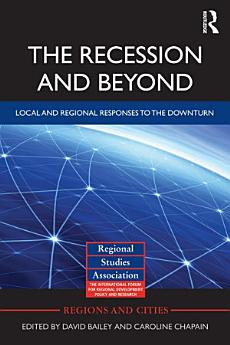The Recession and Beyond: Local and Regional Responses to the Downturn
About this ebook
This book begins by looking at the potential impacts of downturns and economic shocks on firms, workers, communities and places, both in the short and long term (Part I). Part II then looks at interventions and responses that local authorities can put in place on their own or in partnership with other local, regional and/or national actors to try to deal with these differential impacts. Building on these insights, part III offers international perspectives, outlining the role of local authorities during the recession in France, Canada and Australia. These examples and cases highlight some key variations in the availability of resources at the local level across countries and shed light on the way particular economic situations and governance contexts influence local authorities’ responses. This section also includes work by the OECD LEED Programme which surveys cities worldwide and which looks at the application of the ‘Barcelona Principles’.
Overall, the volume makes a fresh contribution to understanding local economic development and governance by providing a unique perspective and original data on the way local authorities have dealt with the recent economic shock across countries. Looking ahead, the book also raises some important issues in relation to local and regional governance and policies to foster long term, sustainable economic recovery. This edited volume will be accessible to and suitable for students and researchers studying economic change, the recession, planning, public policy and industrial policy interventions, and political science.
About the author
David Bailey is Professor of International Business and Economic Development at the Birmingham Business School, UK.
Caroline Chapain is a Lecturer at the Centre for Urban and Regional Studies at the Birmingham Business School, UK.








